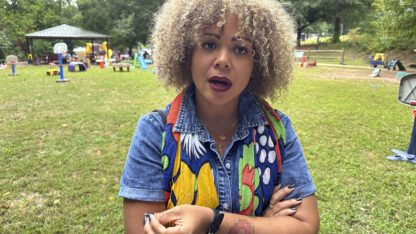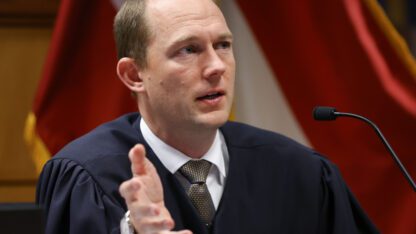Vice President Kamala Harris and former President Donald Trump took center stage in their first presidential debate Tuesday night in Philadelphia.
Reproductive rights, immigration, the economy and the Israel-Hamas war were among some of the top issues discussed during the debate. Both sides are claiming victory, but “Closer Look” show host Rose Scott talked with several guests for debate analysis.
First, Andra Gillespie, a political scientist at Emory University, talked with Scott about some of the policies and plans that each candidate raised during the debate. She also discussed debate questions, live fact-checking, as well as the potential short- and long-term impact of President Joe Biden’s decision to exit could have on the presidential race and American history.
Then, for more reaction to the debate, Scott Klug, a former Wisconsin congressman, Fred Hicks, an Atlanta-based political strategist and analyst, and Georgia State University politics and policy professor Tammy Greer discussed the individual strategies of Trump and Harris during the presidential debate. They also talked about recent political polls and shared what they think Democrats and Republicans must do to win the November election.
Then, Tim Franks, an award-winning veteran journalist and host of the BBC News’ flagship radio program, “Newshour,” weighed in about the presidential debate and talked more about what he’s hearing from Georgia voters. In addition, he explained the BBC’s approach to covering U.S. politics.









